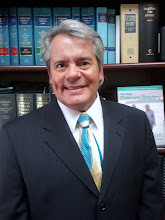As soldiers returned home from World War II and America entered into a new era of growth and prosperity, our country saw a spike in the birth rate, known as the baby boom. These “baby boomers” are no longer babies, but are now seniors in their sixties.
But it is not only the baby boomers who contribute to our country’s elder population. The growth rate of the elderly population greatly exceeded that of the population as a whole throughout the entire twentieth century, and this trend continues into the twenty-first century. The reason for this growth rate is most likely due to the incredible advancements made in science and health, which have contributed to much longer, healthier lives for people on average, compared to their nineteenth century counterparts or any era before.
While our elders are for the most part enjoying a higher quality of life in their later years than perhaps their ancestors did, they still need access to a variety of health services, which continues as they grow older.
Unfortunately, this growing segment is expanding in a time when financial pressures are placing severe constraints on public budgets. Unemployment is up and tax revenues are down, which means that public agencies have to fight over scarce resources. These agencies include the Department of Health Services (Medi-Cal) and numerous health care facilities, including hospitals, urgent care, home health and long-term care resources. Even private nursing homes are not immune. These facilities are regulated and overseen by public agencies, and as that system’s resources become overburdened, the quality of care in nursing homes can decline dramatically and incidents of abuse can go unreported and uncorrected.
A recent report in Los Angeles County referred to an upcoming “senior tsunami” and cited numerous instances where local government is falling short of meeting the needs of its senior citizens. Major areas identified included a lack of oversight of county agencies, a lack of a formal system for training and monitoring social workers, and a lack of resources focused on the prevention of elder abuse as opposed to only addressing abuse after it has occurred.
Now more than ever it is vital that you have someone on your side to protect your rights, someone who knows how the system works and can make sure that you and your loved ones are taken care of. Contact me today if you feel that your rights have been violated or need assistance navigating through the increasingly complex area of senior health care.
Thursday, July 9, 2009
Increase in Demand for Senior Services May Lead to “Senior Tsunami”
Subscribe to:
Post Comments (Atom)


1 comment:
Vincent M. Casiano, Esq.
I have had several instances lately in dealing with the application, re-determination, and appeals application and process for Medi-Cal where I was nothing short of stunned about the failure of the government to follow their own rules and laws in this regard. Medi-Cal In fact, I was just informed from an operator with the Health and Human Services Agency in San Diego County, that it is taking up to 6 months to review new Medi-Cal applications.
In another case, the county eligibility worker miscalculated the share of cost. I had to go all the way to the day before the appeal to obtain a conditional withdrawal. I can't imagine how families without representation are managing. VMC
Post a Comment